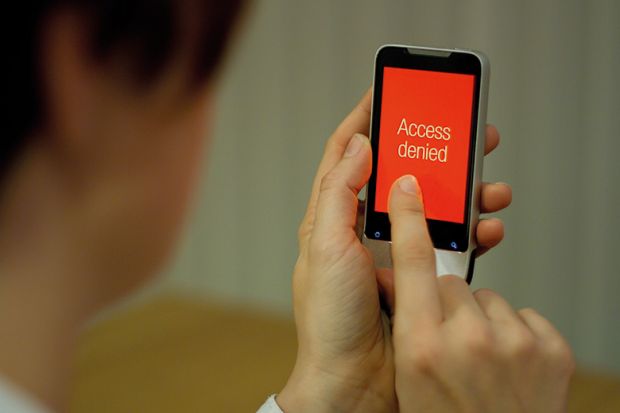Publisher Taylor & Francis has dropped plans to charge extra for access to older research papers online, after more than 110 universities signed a letter of protest.
The latest renewal of UK universities’ deal with Taylor & Francis, which was agreed in principle at the end of January but is yet to be signed, for the first time covered papers published only in the past 20 years. Papers published in a one-year window between 1997 – seen as the year that the digital academic publishing era began – and 1998 would have been placed in a “modern archive”, and universities would have had to purchase access to this as a separate package.
Significantly, the 20-year span of papers included in the main deal, known as the “front file”, would have moved forward in time with each advancing year.
This meant that the number of papers in the modern archive would get larger every year and costs could escalate. In 2023, for example, universities would have had to pay for access to papers published between 1997 and 2003 as a separate package.
Universities that had previously licensed particular titles into perpetuity would still have had access to those papers at no additional charge.
In an open letter, head librarians from more than 110 UK and Irish institutions, as well as representatives from Research Libraries UK, the Society of College, National and University Libraries (Sconul), and the Irish Universities Association, warned that the new policy “will increase administration activities and costs substantially”.
The move would create “confusion and annoyance” for customers, says the letter, which adds: “Diminishing this coverage [to older articles] is opportunistic and potentially profiteering within a sector which is recognised to enjoy substantial profit margins at present as it greatly monetises the outputs and inputs of publicly-funded research.”
Richard Parsons, chair of Sconul’s content strategy group, told Times Higher Education that the new policy “is a line beyond what is fair and reasonable”.
“It gives the publisher another route to earn money from their collections. Collectively librarians consider this unfair and not in the ethos of partnership,” said Dr Parsons, director of the Library and Learning Centre at the University of Dundee.
“After 20 years those articles suddenly disappear even though academics have been reading them before that and these are the people who produced the articles.”
Negotiations on Irish universities' next deal with Taylor & Francis are ongoing.
In a statement issued on 19 February, Taylor & Francis said that it had decided not to implement the new policy and that it would reinstate historic access as part of the main subscription.
"We apologise for the concern that the new policy generated, this was resolutely not our intention," the statement said. "Taylor & Francis is committed to remaining a long-term partner not just to researchers and librarians, but to all those that participate in the scholarly process."
Following the issuing of the statement, Dr Parsons said that library directors "will be generally very welcoming of this development".
"We are pleased to see the importance of partnership and consideration shown to the sector," he said. "All were expressing concerns on behalf of readers, and easy access to scholarly publications needs to be both the focus of the publishers and librarians.
"We will welcome the opportunity to work further with Taylor & Francis to enhance and sustain the access to scholarly publications for University students and staff."
Register to continue
Why register?
- Registration is free and only takes a moment
- Once registered, you can read 3 articles a month
- Sign up for our newsletter
Subscribe
Or subscribe for unlimited access to:
- Unlimited access to news, views, insights & reviews
- Digital editions
- Digital access to THE’s university and college rankings analysis
Already registered or a current subscriber? Login








